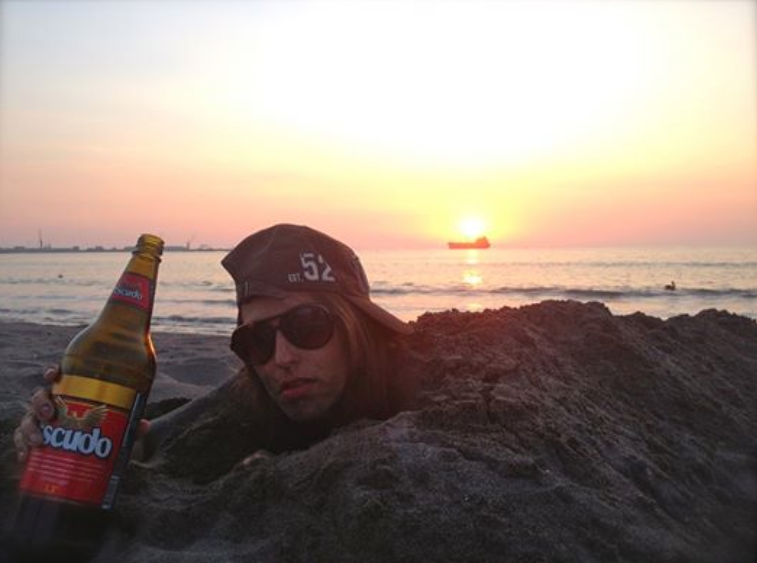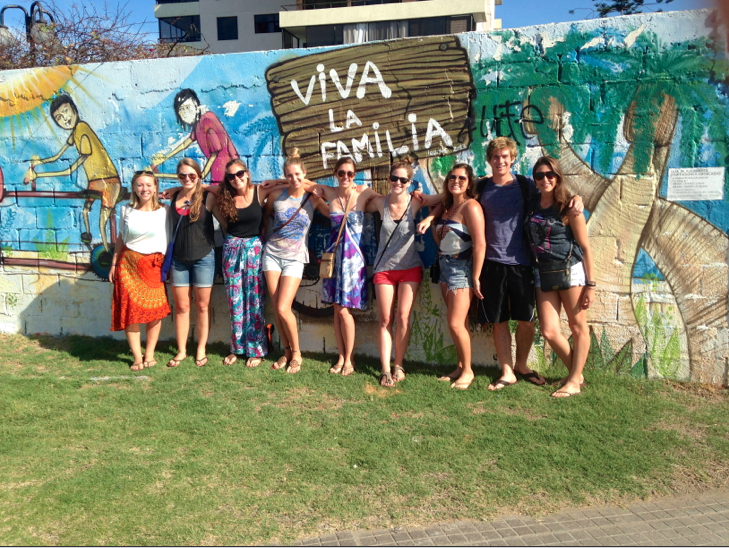Hello from Putre!
We are now 10,000 feet above sea level, a 3 hr drive from Arica (including 3 stops to acclimate to la altura, learning about the Aymara people, an indigenous tribe that lives here as well as in Bolivia and Peru. I took a poll of the general mood of the program participants on day 1 in Putre and these are the results:
Those of us who were stressed are so because we have ISP Project Proposals, Institutional Review Board (IRB) applications, and an oral exam due monday yet have no wifi! AHH this is the high-strung gringa´s worst nightmare.
It is definitely hard to breath at 10,000 feet but the SIT team is well prepared with oxygen, coca leaves, and glucose. The first day most people had headaches and were feeling pretty lethargic. I am feeling a lot better adapted to the altitude today and was able to go on a very light jog around town with friends.
I have found our classes in Putre very interesting and am paying close attention to the differences in the healthcare system and culture between the Mapuche and Aymara communities we have studied thus far.
Health Care system in Putre
Our excursion leader Aldo (a matron or midwife) has seen serious growth in the healthcare system in Putre during his 25 years of service
When he first came there was only a postal de salud in which the whole medical staff lived. The team that not only treated humans, but also animals.
1,120 people live in Putre and the surrounding smaller pueblos and 90% of the population is Aymara
climate: desert marginal...as we have learned it is very hot during the day and very cold at night
2 rural postals (just have paramedics)
1 Center of Salud Familiar (CESFAM)
1 Casa comunitaria (where the traditional healers work)
*The closest hospital is in Arica
ambulances are available
Class con el Yatire (Aymaran doctor):
The Yatire treats patients through ceremony and herbal remedies. He also is able to read ones fortune through coca leaves, a skill he says anyone can learn with time and practice.
We started the class with a ¨Pawa¨ceremony outside in which the Yatire asked for us to be helped and guided in our studies. The ceremony included prayers to God and the Virgin Mary as well as Pachamama (la tierra/the land). The Catholic influence was very interesting to me. The wife of the Yatire helped him in the ceremony as is customary in any ceremony since the male and female sex are seen as complimentary and both necessary. In fact, most indigenous medical practitioners in both the Mapuche and Aymaran tribes are female.
The Yatire taught us about a variety of herbs he uses in his treatments:
uña de gato: anti-inflammatory properties involved in treatment of tumors, rheumatoid, cysts
pingo pingo: diabetes and other kidney treatments, urinary pain, prostate issues
eucalyptus: cold treatment
poleo: stomach pain/ digestion difficulty
flor de llareta: altitude sickness (we used it a lot in Putre!)
Whenever the Yatira takes plants from nature he asks permission through prayer and gives some coca leaves to the land in return. It is also important to ask permission when entering into natural spaces. Both the Aymara and Mapuche cosmovisions include the idea that everything has a spirit (plants, animals, mountains, rocks, illnesses etc). It is very important not to interfere in the spaces or times of other spirits which is why asking permission to enter natural spaces or take from the earth is essential.
Here are some photos of the Yatire and us watching the Yatire and his wife perform the Pawa
 |
| We look bored...but we were not! |
We also were lucky enough to have a class with an Aymaran partera, La Usuyiri. In an attempt to reduce the mortality rates for both mothers and babies during births, a law was passed prohibiting births from taking place in houses. This means that every pregnant mother must go to the hospital in Arica to give birth. Therefore the Usuyiri can no longer attend to births alone in Putre but will rather go to the hospital in Arica with clients and do house calls relating to fertility, contraception, STD´s, pregnancy, and the postpartum period.
Birth: el parto
To give birth: Dar la luz -This phrase is so beautiful it makes me want to cry. It directly translates to¨ give the light,¨ because children are the light parents bestow upon the world
Pregnant: Embarazada
Pregnancy: El embarazo
Baby: Guagua or wawa-mimics the sound of a crying baby
Some knowledge from the Usuyiri:
- Expectant mothers cannot take any medications or herbal remedies until the 5th month of pregnancy for these may affect the fetus during an essential period of development and cause birth defects
- At 8 month the Partera begins to look into the babies positioning and performs repositioning ceremonies ¨manteo¨if necessary (see movie below).
- After the baby and placenta are delivered, the placenta and umbilical cord are kept in the house for 15 days then buried in the ground at a location that hold a significance for the families wishes for the child.
- If there are too many people in the delivery room during the birth the mother and baby may be frightened causing the baby to go higher up into the uterus and delay the delivery. For this reason only 1 or 2 family members/friends are allowed in the delivery room.
- The mother is not supposed to bathe for 8 days after her delivery. If she bathes their is a risk that water will enter through her nails and chill her blood. When she does bathe there is a special cream made of mule fat and straw that she coats her nails with to seal them.
- During a delivery the mother may be encouraged to drink a little bit of wine, walk around a little, and receive a massage, to heat up her body and speed up her labor.
- The most common birthing position is on ones knees
- Circumcisions are performed but by a doctor rather than the Usuyiri. It is common for families to wait a few months before the circumcising their baby.
- Giving birth to a baby boy is a harder pregnancy
- Causes of prematurity: poor diet and heavy lifting. Prematurity often occurs en el campo (farmland) where the mothers continue working all day and may not have the means to consume sufficient nutrition.
Aymara Contraception Methods:
- The consumption of a piece of a mules toenail is thought to prevent a pregnancy. A women takes la ¨uña del mulo¨ (nail of the mule) during her period for 4 or 5 days every month
- Another method (if for example a mule isn´t available) is ingesting the herb salvia everyday.
- Parsley can cause an abortion-This home remedy is well known especially because medical abortions are illegal in Chile
Here is a link to a video of the Usuyiri demonstrating a ¨manteo¨ procedure on me. This procedure would be performed in the last week or so of a pregnancy if a fetus was positioned incorrectly in the uterus. The fetus must be positioned with the head facing down towards the ground(Cephalic rather than Breech positioning). This way, the head and shoulders, the largest parts of the baby´s body are delivered first. A breech delivery also poses increased risk of oxygen deprivation for the fetus.
Considering I am not pregnant, I am not sure if this actually works, but if it does it is much more pleasant than the inversion procedure practiced in modern medicine!
 |
| La Usuyiri performing el Manteo |
The host throws a stone at the rock tower and if the stone tower falls, the food is ready. It the tower holds up the food needs to be cooked longer( ¨falta un poco¨) At my guatia, my hand–eye coordination would never permit the food to be fully cooked, but what are you gonna do!
 |
| Sunrise hike! |







































